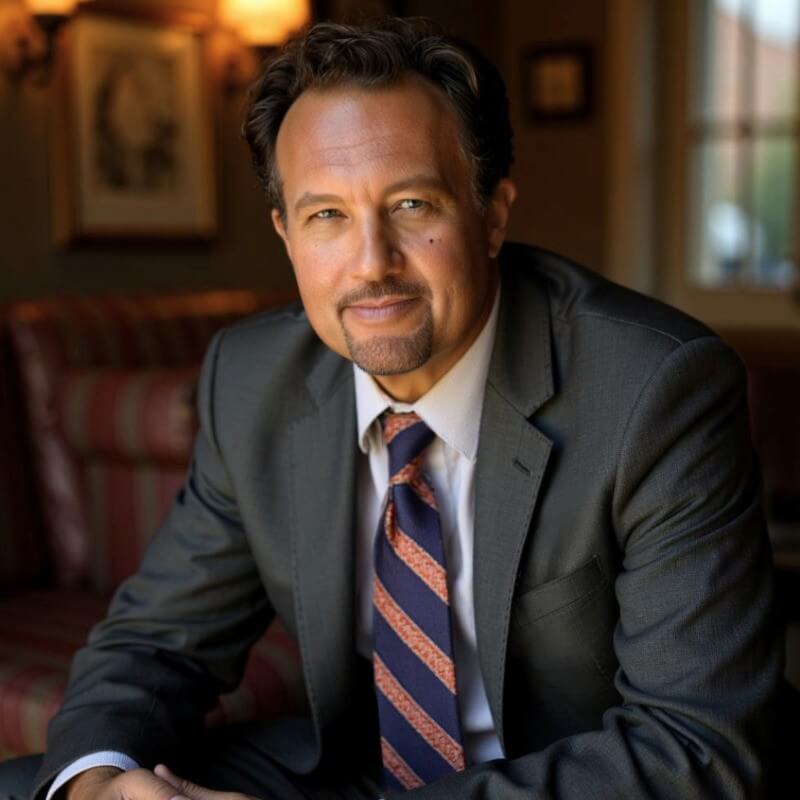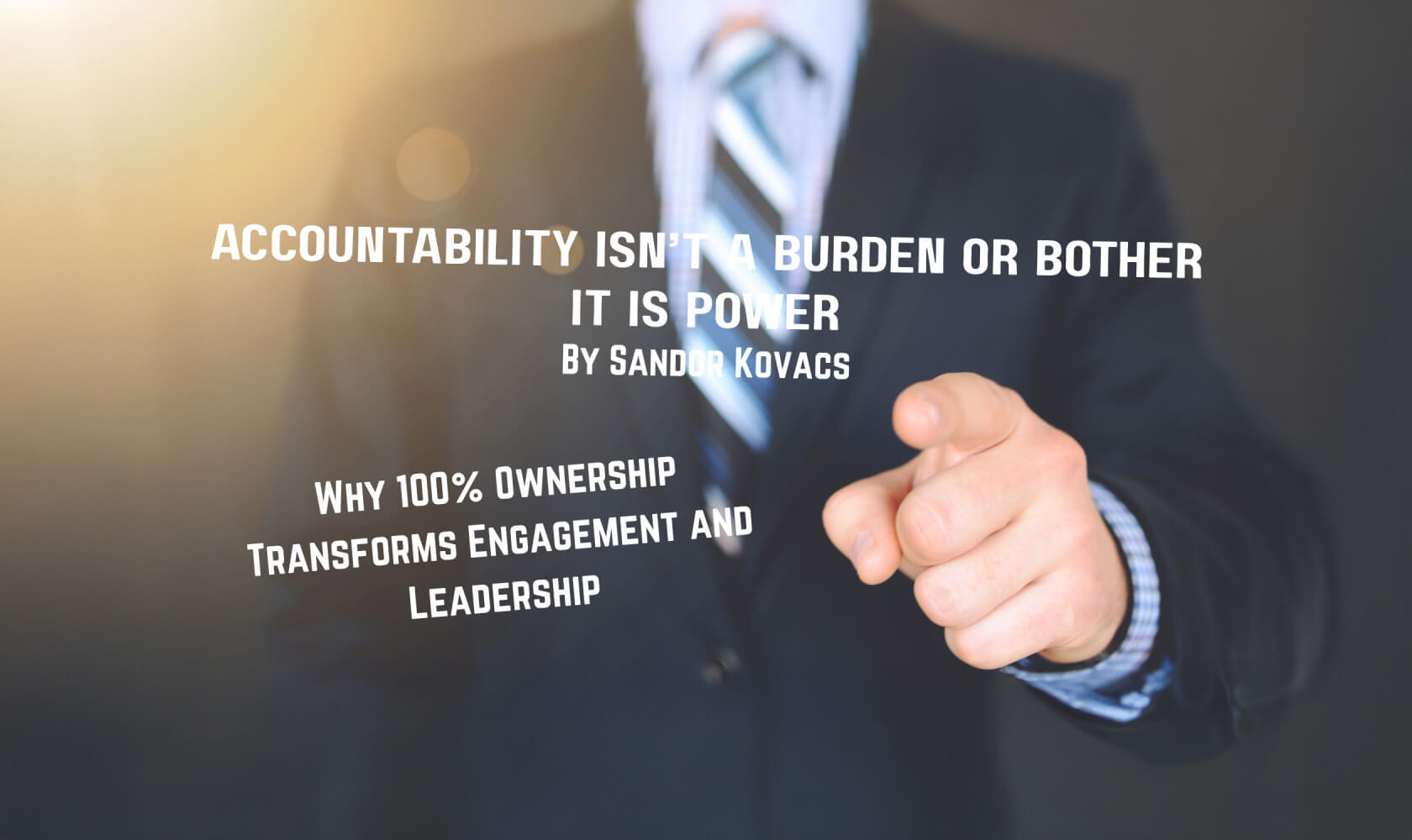Written by Sandor Kovacs: CEO and Co-Founder of DorWay™
The Breakthrough Companies That Prove It
Harvard Business Review studied W. L. Gore (the GORETEX company) and the tomato cooperative known as Morning Star, both celebrated for cultures of radical accountability. Gore shifted authority to individuals, creating a lattice of independent contributors tied together by mission and personal responsibility. Morning Star operates without bosses, where people negotiate responsibilities with peers and hold one another to high standards.
These companies are not similar in industry, yet they share a core principle: every person knows they are responsible for their results, their peer agreements, and the culture they build.
Accountability as Power: The Reality Check
When people are trained to own outcomes, relationships, breakdowns, even mistakes, they experience:
- Agency, feeling powerful because they know they are the root cause of what happens.
- Connection, because they see how their choices influence others, and so they engage deeply.
- Leadership, stepping forward in complexity because they know they are accountable.
All three of these experiences carry over into a person’s life, leaving them with a sense of being in charge of their life and the daily circumstances. This carries over into their work.
At DorWay, we train leaders to embody this stance: owning mindsets, commitments and impact. Those who learn to live from accountability don’t burn out; they grow as agents of change.
The Hidden Costs of Weak or No Ownership
When organizations do not train for ownership, the consequences emerge:
- Employees wait for direction instead of making things happen.
- Managers blame conditions instead of shaping new possibilities.
- Teams produce tasks instead of outcomes.
- Projects stumble, morale drops, and drift sets in.
HBR confirms that companies embracing both compassion and accountability get traction. Those avoiding accountability face breakdowns, turnover, and degraded culture.
At DorWay, we integrate deliberate structures, so people no longer wait, they lead. We help organizations stop tolerating excuses and start cultivating ownership as the default state.
How to Build Ownership: A Step-by-Step Process
Leaders often demand accountability. So few teach how to fully support it mostly because they were not trained in how to do it themselves. Here is a refined version of our proven process:
1. Lay the Foundation in Hiring and Onboarding
- Begin with stories. Share the practices at Gore and Morning Star, where accountability is a way of being, not a performance metric.
- Ask every hire: “How do you define accountability?” Ask for examples in their career.
- Provide early exposure by pairing them with individuals who embody ownership, not just task completion.
2. Craft Shared Team Agreements
- Within 30 days, co-create written team agreements that define roles, deliverables, escalation paths, and personal responsibility.
- Ensure every team member signs the agreements, acknowledging mutual accountability.
- Conduct quarterly reviews to identify and address breakdowns, ambiguities, or unspoken assumptions.
3. Coach Toward Cause, Not Compliance
- Replace command-based language like “Can you do X?” with generative coaching such as “How will you cause X to happen?” This type of question causes critical thinking.
- When breakdowns occur, ask “What are you going to do next?” instead of “Who dropped the ball?”
- Develop an internal culture of committed speaking, where coaching evokes self-authored ownership rather than compliance with authority.
4. Activate Peer-to-Peer Accountability
- Include reflection checkpoints in every team review: “Did I support you in being accountable this week? How did you support me?”
- Train feedback to focus on being, not just doing. Speak to who the person was being, the impact that way of being had, and extend an invitation to shift into a more powerful context.
- Implement frameworks where peer accountability is relational, direct, and always future-focused.
5. Model Relentless Ownership
- Publicly own your own breakdowns and demonstrate your course corrections.
- Show how you re-engage stakeholders when results are off track.
- Invite coaching and feedback on your way of being, not from defensiveness, but from a commitment to lead with integrity.
6. Systematize With Tools That Reinforce Ownership
- Build responsibility dashboards that link people to clear outcomes, not just tasks.
- Develop one-page visual team maps that show who is accountable for what, so ownership is never ambiguous.
- Conduct monthly ownership reviews, not to monitor, but to recommit and recalibrate based on what is being caused.
Why This Matters Now
Gallup 2025 data reveals:
- Global engagement at 21%, Manager engagement at 27%, Preventable turnover at 42% and less than 30% of projects complete on time and budget
These are not stats. They are symptoms of untreated disengagement anchored in reason-based living. If people are never trained to stand in accountability, excuses become habits and engagement decays.
Final Word
Accountability is not a burden. It is liberation.
When people claim ownership over their life, their work, their mistakes and their impact, they no longer wait for someone to take care of them or for life to make them happy, they lead. They engage more. They create transformation instead of managing decay.
Organizations like Gore and Morning Star prove it is possible.
At DorWay we do more than talk about accountability. We train it, model it, and make it non-negotiable. We help people experience leadership as a way of being.
All revenue, time, resources, great plans and more get lost in a culture with no accountability.
Train it. Live it. Expect it.
Because accountability is not an obstacle. It is power.
All documents © 2023-2025 DorWay™ All Rights Reserved Worldwide

